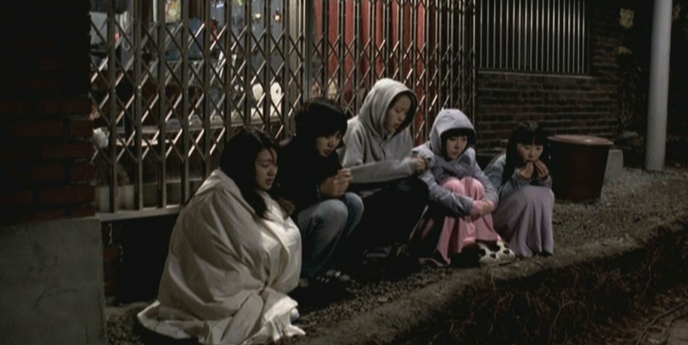BECOMING JANE
2007, Julian Jarrold, United Kingdom / United States / Ireland
1st Viewing, TheaterMiramax is still looking to find the Oscar success they gained with 1998’s Shakespeare in Love using the similar formula for J.M. Barrie (Finding Neverland) and now the great Jane Austin. While not bad films, they both the charming imagination that made Shakespeare in Love such a success. One thing that film did was not take itself too seriously or fall into the clichés of the standard bio picture. I am a very big fan of Jane Austin as a person and an especially an author, but I don’t think I’m just being a fan when I say it is unjust to simplify her work with something such as event A equals event B, which tends to be a common occurrence in traditional Hollywood biography films, and ultimately that is what this becomes. We are told this film is a loosely taken by what inspired Austin’s masterpieces yet the film is completely uninspiring and unimaginative, lacking any sense of warmth, or clever wit common in Austin’s work. The film tries desperately to make obvious references to each of Austin’s beloved novels, taking characters, events, and even dialogue directly from them all (especially Pride & Prejudice, perhaps her most beloved novel). The film has it’s moments (such as the opening scene at least up until the forced line “
That girl needs a husband”, as well as the discussion of Tom Jones, or Austin’s witty insight into irony). Despite some arguments against her in pre-production, I like Anne Hathaway as Austin and she does a fine job. Hathaway has a star quality in both her presence and intelligence. She seems to understand stardom (her wise selection in films roles stands as evidence) and for that I imagine she will be around for quite some time. Becoming Jane is entertaining enough, but the film lacks the Austin touch, instead feeling forced and overly melodramatic more so then witty or charming.
INSIDE MAN
2006, Spike Lee, United StatesRepeat Viewing, HBO
"
Let's keep the real bad guys off the streets" says Denzel Washington near the end of the film, which seems to be making political statements with the standard conventions of genre filmmaking. With his latest film, The Inside Man, Spike Lee is doing something much different then he has ever done: a standard Hollywood genre heist film. While Inside Man is full of conventions and standard cliches it remains top-notch genre filmmaking. Lee manages to gives genre standards some complexities and the result is a deeply involving and rewarding film from start to finish. The film is not packed with an overload of twists (particularly towards the final act) as would be expected with this type of heist film. Lee structures the film with skill, also blending in some non-linear flashbacks to keep the audience thinking and interpreting their own conclusions. The film manages to be both fully engaging and entertaining while Lee still is able to subtly express his more traditional political and human elements all without ever losing focus or control of the direction. Inside Man is beautifully made and shot and also features some interesting music and outstanding dialogue and performances by the star-studded cast (lead by Denzel Washington, Clive Owen, Chiwetel Ejiofor, and Jodie Foster). Denzel is especially good in a Bogart-esque detective role (clothes, hat, and tough fast-talking dialogue included!) Maybe not on the masterpiece of its filmmakers greatest work (Do the Right Thing, 25th Hour), but Inside Man is an excellent film on many different levels.
TOKYO CHORUS
1931, Yasujiro Ozu, JapanRepeat Viewing, DVDTokyo Chorus is a wonderful introduction of Ozu during the silent era. Thematically you can certainly see that Ozu later built upon what he developed early on here, and stylistically there is clearly a more Hollywood influenced approach. The film is tragic yet deeply hopeful at the same time. One of the key examinations of the film is the contrast between urban and suburban living, but ultimately this is a film of parenthood in it's very essence. The film is remarkably moving particularly in the way Ozu captures (without sentiment) the childrens acceptance and understanding of their fathers work simply as a means to provide them with food. There are some remarkable images and sequences within this film that are very memorable and Ozu blends his definitive mix of humor and bittersweet sadness. Above all, Tokyo Chorus displays the early depicts of a poetic master.
>>> More on Tokyo Chorus @ A2P Cinema's Yasujiro Ozu website HERE >>> A clip from Tokyo Chorus:



